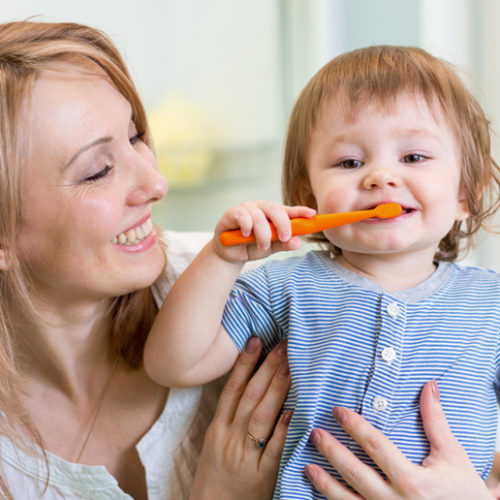Rewiring Young Minds: The Intersection of Science, Trauma, and Hope

Antony Bainbridge, Head of Clinical Services at Resicare Alliance, explores how science-backed, trauma-informed care is transforming the lives of children affected by Foetal Alcohol Syndrome (FAS) and ADHD, offering them a path to stability and hope.
Consider a young life where the first memories are filled with turmoil and lack of care, and the body constantly fights against the hidden damage caused by prenatal alcohol exposure. This is the harsh reality faced by many children.
There could be a number of reasons why a person with impaired brain functions could face difficulties regulating their emotions. Among children, Foetal Alcohol Syndrome (FAS) and Attention Deficit Hyperactivity Disorder (ADHD) are two conditions that could be the culprit behind slowed cognitive development and poor emotional control.
These disorders are also commonly linked to parental neglect and childhood trauma, shaping not only a child’s emotional and behavioural patterns but even their fate in life in general. However, research-driven interventions — such as trauma-informed care, therapeutic parenting, and targeted psychosocial support — can help mitigate these effects.
By merging scientific understanding with human empathy, we can change the trajectory of these children’s lives.
How FAS and ADHD Affect Children’s Development
FAS is one of the most common foetal alcohol spectrum disorders — affecting an estimated 1 to 5 out of 100 children in the U.S. and Western Europe alone. It’s a condition that results from prenatal alcohol exposure, and research shows that it can lead to delayed speech and language development, poor concentration and coordination, hyperactivity, and learning disabilities.
Physically, FAS manifests as distinct facial features such as small eyes and a thin upper lip. Children with FAS also typically have a small head size, low body weight, and short height, among others.
ADHD is another common brain disorder, with about 8% of children and adolescents worldwide having this condition. ADHD is characterized by an inability to maintain attention, impulsivity and hyperactivity.
Currently, there’s no defined specific cause of ADHD. However, experts have been continuously finding evidence that several genes are associated with this condition. Children with low birth weight, who have experienced premature birth, or who have been exposed to alcohol and smoking while they’re still in the womb tend to be more at risk of ADHD.
Moreover, research has shown a strong correlation between childhood abuse, neglect and ADHD, highlighting that the disorder isn’t solely genetic; it’s also influenced by a child’s environment.
As a chronic condition, ADHD transcends childhood and can persist well into adulthood, affecting self-esteem, relationships, and career prospects. Apart from poor functional outcomes, ADHD in children is also linked with comorbid psychiatric disorders like oppositional defiant and learning disorders.
How Science-Backed, Compassionate Intervention Helps
One such child, a 10-year-old boy residing in a specialised neurological rehabilitation facility, and has been diagnosed with FAS and ADHD. From birth, he has been exposed to an unstable home environment where both his biological parents struggled with substance use and mental health issues.
After being removed from his parents’ care, he was placed with his paternal grandparents. Even then, he displayed oppositional behaviours, struggling to form secure attachments. This led to his placement in a looked-after system. He was initially accommodated under legal provisions that provide temporary care for children who cannot live with their parents or legal guardians.
Despite the structured environment, his struggles persisted. His outbursts tested the patience and expertise of those around him, highlighting the deep-rooted nature of his trauma. He showed aggression, destruction of property, and lack of control. Simply put, the staff struggled with his behaviour — which stems from his attachment issues and uncertainty about who cared for him as he grew up.
His story reflects how traditional foster placements are fraught with challenges, especially when it comes to dealing with children with complex trauma histories. However, this matter is not without a solution.
The staff underwent bespoke clinical training, equipping them with the skills to handle FAS and ADHD-related challenges. Their training comprised understanding FAS and ADHD, how to manage challenging behaviour, and how to facilitate therapeutic parenting using the PACE (Playfulness, Acceptance, Curiosity, and Empathy) approach. This structured yet compassionate approach helps professionals and caregivers build secure, trusting relationships with children, particularly those who have experienced trauma, neglect, or attachment difficulties.
The facility also made extensive efforts to reconnect him with his paternal grandparents, ultimately leading to a supervised reunion with his father. In addition to supporting him, the facility also plays a key role in helping his grandmother come to terms with her inability to provide long-term care for him.
While the whole experience was a challenge for all parties involved, substantial improvements were achieved, especially in his behaviour and emotional regulation and in the staff’s perception of him. Now, he is expected to stay at facility for another 6 to 12 months to complete clinical work, while efforts are underway to identify a specialist foster carer.
Intensified Efforts in the UAE
The child’s success story offers hope — that children with FAS and ADHD can change for the better through early intervention and genuine compassion. His circumstances, though rife with challenges, show that well-implemented research-backed methods such as PACE can rewire the brain and help affected children form healthier relationships with those around them.
Recognising the importance of such an approach to mental health intervention, the UAE has also made great strides when it comes to improving its child welfare and mental health services. The country’s Federal Law No. 3 of 2016 (also known as Wadeema’s Law) showcases its intensified commitment to safeguarding children from neglect, exploitation, and abuse.
Complementing this is the UAE’s investment in autism and ADHD care. The Federal National Council (FNC) has recognised the need for more accessible and affordable autism care centres, working to increase capacity and improve access. Currently, out of 95 facilities across the UAE, 61 centres provide holistic services for people with autism.
The establishment of dedicated autism centres is a way to address this growing concern. Umm Al Quwain Autism Centre, for instance, was established by the Ministry of Community Development in 2015. It currently serves 114 children from Umm Al Quwain, Ajman, and Sharjah. Additionally, sections dedicated to autism care have been integrated into various centres for people of determination across Dubai, Ajman, Ras Al Khaimah, Fujairah, and Dibba, collectively serving over 850 children.
Furthermore, the government has launched an early autism detection program, benefiting over 20,000 children since its inception. This initiative integrates AI-powered screening tools and streamlined referral systems, ensuring children receive timely interventions. The Emirates Health Services (EHS) has reported that between 2022 and mid-2023, 20,626 children aged 16 to 30 months were screened under this program, reflecting a high compliance rate of 97%.
The UAE also recognises the need for collaborative efforts to implement digitally driven endeavours. A landmark partnership between the Mohamed bin Zayed University of Artificial Intelligence (MBZUAI) and China’s Infinite Brain Technologies (IBT) aims to revolutionise mental health treatment through AI-driven digital therapeutics.
Both Science and Compassion Matter
Children are subject to many vulnerabilities. Getting exposed to substances like alcohol even before they were born — coupled with a childhood environment mired in neglect, instability, and trauma — can severely impact their development.
Thankfully, research-based interventions offer solutions. While science provides ways to rewire children’s brains, compassion shows us how to intervene effectively. Together, they can reshape foster care systems and create more success stories like this.
Image Credit: Resicare Alliance











Comments